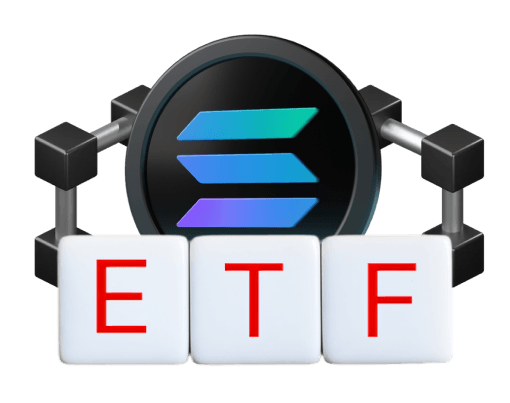Exploring Solana ETFs:
A New Frontier in Crypto Universe


Solana is a prominent cryptocurrency known for its high-speed blockchain technology. As interest in crypto-based financial products grows, investors are closely monitoring the potential launch of a spot Solana ETF. This type of financial instrument could significantly reshape market dynamics and investment strategies.
Thanks to its fast and scalable blockchain, Solana is a strong candidate for new financial products. A spot Solana ETF would provide a regulated and accessible way for investors to gain exposure to Solana's price performance without needing to own the token directly. This could broaden the appeal of digital assets to a wider audience.
Spot Solana ETF: Direct Exposure to a Leading Blockchain
The introduction of a spot Solana ETF could be a pivotal moment for cryptocurrency investment. Similar to the spot Bitcoin ETFs approved in early 2024, a Solana ETF would track the price of SOL directly. This offers investors a straightforward way to engage with the asset's market movements, potentially enhancing liquidity and providing the regulatory oversight that institutional investors often require.
Formal approval from a regulatory body like the U.S. Securities and Exchange Commission (SEC) would add significant legitimacy to Solana and other altcoins. The financial community is closely watching the regulatory process, as its outcome could set a precedent for future crypto-based products and signal broader acceptance in mainstream financial markets.
Security and Innovation: The Core Appeal of a Solana ETF
A Solana-based financial product appeals to investors for more than just simple market access; it also highlights the potential for innovation. Solana’s protocol, designed for high-speed, low-cost transactions, provides a strong foundation for various financial instruments. This positions Solana as a key player in bridging the gap between traditional finance and blockchain technology.
If a Solana ETF is authorized, its market debut and performance will be closely watched. Investors will be interested to see how it compares to holding SOL directly and to traditional ETFs. Its success could encourage more cryptocurrencies to enter the ETF market, leading to a more diverse and secure trading environment. However, this also presents challenges, as exchanges would need to adapt their systems for blockchain-based securities, ensuring robust security, transparent pricing, and efficient trading to protect investors.
How to Securely Store SOL Tokens
Securing your SOL tokens is crucial. The right wallet depends on your priorities, balancing security, convenience, and functionality.
- Hardware Wallets: These physical devices offer the highest level of security by storing your private keys offline. Popular options supporting SOL include Ledger and Trezor.
- Software Wallets: These applications for computers or smartphones offer a good balance of security and ease of use. Examples include Phantom, Solflare, and Exodus.
- Web Wallets: Accessible through a web browser, these are convenient for frequent transactions but are generally considered less secure than hardware or software alternatives.
Conclusion
The potential launch of a spot Solana ETF marks a significant step in the convergence of cryptocurrency and traditional finance. With its innovative technology and strong investor interest, Solana could set new standards for digital assets. As this new chapter unfolds, the market will be watching to see how Solana's role in the financial landscape evolves, positioning it as a key player in modern economic innovation.
Frequently asked questions
-
Where can I buy SOL tokens?
You can buy SOL on major cryptocurrency exchanges. These platforms allow you to purchase tokens using various payment methods, including bank transfers, credit cards, and other digital payment services. -
Is Solana related to Bitcoin?
Solana and Bitcoin are separate cryptocurrencies built on different blockchain technologies. Bitcoin is primarily seen as a decentralized store of value, emphasizing security. Solana focuses on high transaction speeds and low costs to support scalable decentralized applications. -
What is a spot Solana ETF?
A spot Solana ETF is an investment fund that would hold actual SOL tokens. It allows investors to buy shares representing ownership of the underlying Solana, providing exposure to its price movements through traditional brokerage accounts. -
Has a spot Solana ETF been approved?
No, as of mid-2024, a spot Solana ETF has not been approved in the United States. While the financial industry anticipates future applications, the SEC has not yet authorized such a product. -
Why is a potential Solana ETF approval significant?
An approval would be significant because it would make Solana accessible to a broader range of investors through regulated financial markets. This could increase liquidity, enhance its legitimacy as an asset class, and attract more institutional investment into the Solana ecosystem.
Our website uses cookies. Our Cookie Policy

